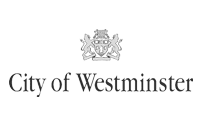It’s important, when purchasing a property in London, to consider a property surveys. A property survey is generally required when you purchase a house, flat or commercial building. A property survey is also applicable when looking for a lease extension.
There’s an incredibly rich history of buildings in the capital city and a diverse property market, so a detailed understanding of your potential investment is essential to make an informed decision on what you’re buying.
The typical property inspection assesses the structure of a building, which can be a house or commercial facility, and pinpoints defects, repairs and other issues that need to be alleviated or could potentially jeopardise the building’s reliability and value.
This guide will give you information on property surveys in the Greater London area. We will look at the role of a RICS chartered surveyors in London, different types of surveys and the ins and outs of the Greater London property market. London’s diverse property market has every type of property you could imagine, from brand new builds to quaint Listed Buildings. Due to the clay London is built on, homes in the capital can suffer from subsidence and structural problems because of shrinkage and swelling of the clay surrounding their foundations. Experienced London surveyors are familiar with problems common in the area and can easily identify any kind of problem according to the type of ground you home sits on and the age of your property.
Building Surveys are often carried out by Chartered Building Surveyors who are usually Members of the Royal Institution of Chartered Surveyors (RICS), The Chartered Institute of Building (CIOB), Residential Property Surveyors Association (RPSA), or other such recognizable institutional bodies. When you have a building survey it is worthwhile checking that the surveyor is a qualified/experienced building surveyor and has membership of at least one of these regulatory bodies.
Evidence of similar flats in the same area is usually the main priority when assessing lease extension values. This requires local knowledge and experience that is beyond the scope of our lease extension cost calculator. If you need advice from a trusted, experienced, and local chartered surveyor, don’t hesitate to contact us at 020 3598 6730.
Depending on what property you would like to purchase, how old the property is and whether or not you are getting a mortgage will depend on what type of survey the property requires. An example of this is a RICS level 3 building survey, which is more extensive, better for older properties and a very detailed report and estimated costs for repairs.
When looking at the vast and different properties In London, it is important to look at what is best suited for your property: from the basic Level 1 condition report, to a full building survey plus valuation. Other examples include specific defect reports and roof surveys.
By not getting a property survey you are instantly increasing the risk of loss against defects. Properties with issues like a damp or structurally unstable roof can amount to potentially high costs to rectify and having a chartered Building Surveyors report beforehand can alert you to this prior to exchange.
If defects such as timber rot or foundation problems are identified early then you are in a far better position to make an informed decision. Surveys can also include images of defects or issues and costs estimations to put right the defect. Survey reports give the purchaser the chance to go back to the vendor and renegotiate purchase price or to ensure major works are carried out and the costs addressed before the sale proceeds.
The cost of your property survey will vary from a few hundred pounds to a few thousand pounds, depending on how much investigation is required. A simple Homebuyers report is usually enough for most properties that have been built within the last couple of decades. However, if the property is more expensive, older or larger, then a full building survey is likely to be more suitable.
A homebuyer’s survey is a visual inspection of the interior and exterior of the property that identifies any significant or urgent defects such as subsidence or issues relating to damp or rot. The homebuyer survey is typically suited to relatively modern and conventional properties.
On the other hand, a building survey is far more comprehensive and considered a complete reflection of a property’s condition. Aimed at larger, more expensive or older properties, or properties of non-standard construction, a building survey will provide an in-depth analysis of the property’s condition and includes advice and consideration of the implications of defects identified. The report format includes a description of visible defects and potential problems caused by hidden flaws. As well as providing a repair timeline, the building survey will also include details of the construction and materials used.
One of the most widely accepted property surveys upon which many domestic home purchases are based is the RICS Homebuyer report. The RICS homebuyer report uses a traffic light system to evaluate the condition of the property where green denotes that the area is in good condition, orange that it may require attention now or in the future but not urgent and red where it either is in need of immediate repair or needing urgent investigation.
The Homebuyers report will not be as in depth as a level 3 full building survey, for example, as the surveyor will not pull up loose carpets or potentially look in the roof space in as much detail, but it does provide you with the confidence that you are purchasing a habitable home and lets you know if any improvements or building work may need done. RICS homebuyer reports can also be used when renegotiating or extending a lease on a property by taking into account the property condition.

RICS are one governing body for the property surveying industry, though they are private and not a government agency. An RICS qualified professional, known as “Chartered Surveyor”, provides expert advice on numerous property related matters. RICS registered valuers and surveyors follow strict guidelines and provide a professional services to clients. In London, Chartered Surveyors provide various property services like residential and commercial property surveys for some of the most expensive properties.
The costs for any property survey will ordinarily depend on the size, location and value of the property. It is often worth the additional £100 to £200 to get a full building survey to make sure there are no major issues which could be expensive in the long-term.
Homebuyers report: a common option for London properties. Prices usually start at around £700. This report will identify any major issues, such as damp and rot. It will also give your mortgage company a good idea of the state of the property and you can also ask for a valuation of the property but this will ordinarily come at an additional charge.
Full Building Survey: the market price on a full building survey usually starts at £800 but it will depend on the size, location and value of the property. This report has the capability to highlight any damage and repairs which may set you back thousands of pounds. It’s worth the additional investment, particularly if buying an older or more expensive property, as it can then help you renegotiate the asking price if any issues come to light.
Valuation: this ascertains the market value of a property and the rebuild costs, which will be required by your mortgage provider. It does not focus on the property condition, which you would need a separate report for (Homebuyers or full building survey). A valuation takes into account the property size, location, age, condition, whether any alterations have taken place, etc. They can help you renegotiate the purchase price or resolve disputes. They are also used in tax assessments. If you are looking to refurbish a property, you can forecast your budget based on the expected market value. These typically cost £700 on average.
Specific Defect Report: this is a specialised survey looking at one particular problem, such as subsidence or dampness. The mortgage valuation or building survey may have highlighted a specific concern which needs further investigation and this would ordinarily be undertaken by a structural engineer. The cost can vary between £400 and £1500 depending on what the problem is.
Roof survey: some roof or aerial surveys will be significantly cheaper than full building surveys. A particular concern with the roof may have been highlighted by the building survey or mortgage valuation and so further investigation is required. Re-roofing can be very costly, so you need to know its condition as early as possible. They are carried out either by getting onto the roof, using a pole camera or drone. These generally cost a minimum £600 for a standard roof survey or drone survey depending on the size, location and value of the property.
Hiring a surveyor in London is very beneficial because they help satisfy a range of needs when obtaining a new home in London. Whether you are buying, investing, re-mortgaging or just following due diligence, then looking to survey your residential or commercial property in London is best.
It is almost inevitable that the mortgage company will require some form of survey to be carried out; it will certainly want a valuation.
For a purchaser, if they want peace of mind, a survey is the best way to ensure that there are no major surprises around the corner, particularly with an older property. Choose the right kind of property survey so as to ensure that you do identify serious issues and are given an idea of repairs that will be associated with the defects.
Identify Defects: some may be small and easy to fix, whereas others may mean you will either want to negotiate with the vendor about the price, not proceed with the purchase, or even reconsider how you make sure the property is properly maintained in the future.
Plan for the Future: as the old saying goes, forewarned is forearmed. If you are moving into a new property, whether it’s old or new, having a clear idea about the condition can help you plan effectively for the years to come.
Contractor Quotes: your surveyor can sometimes identify items that may allow you to re-negotiate what the seller is asking for (e.g. £20,000 to remedy dampness).
This is the most detailed report and will usually take several days to compile, but it will be a complete overview of the property. It is more expensive than a Homebuyers report but may save you more by picking up on extra defects. The report covers potential movement/subsidence, timber defects (e.g. rot), damp, condensation, utility services (gas, hot water, heating and electrics), structural integrity of the building frame (roof, chimneys, walls, etc.).
One of the major benefits of the full building survey is it will give you an overall view on the property in question. The survey will be able to assist you in the decision as to whether the property is a sound purchase and whether there are any major or minor defects that are not immediately visible. For example, there might be some purely cosmetic improvements that need to be undertaken, but there might be some areas that will need a great deal of excessive and expensive amount of work in the next few years.
Extending your lease is essential as the value of your property may decrease when the lease term gets shorter, making it harder to sell or remortgage. Additionally, a longer lease term provides more security and flexibility for the property owner.
You are typically eligible for a lease extension if you have owned the property for at least two years and have a lease term of at least 21 years remaining.
During the lease extension process, you are entitled to professional advice and support, fair negotiations, and transparent communication with the freeholder or their representatives.
The cost of a lease extension depends on several factors, including the property’s value, the remaining lease term, ground rent, and the extension’s length. Additionally, legal and valuation fees will add to the overall cost.
To get started with a lease extension, consult a solicitor or leasehold expert, obtain a lease extension valuation, and serve a Section 42 notice on the freeholder outlining your proposed terms.
The procedure for extending a lease involves the following:
a) Consulting a leasehold expert or solicitor
b) Obtaining a lease extension valuation
c) Serving a Section 42 notice on the freeholder
d) Negotiating the terms and cost of the lease extension
e) Finalise and register the new lease agreement with the Land Registry.
A lease extension can be refused if you do not meet the eligibility criteria, serve an invalid Section 42 notice, or disagree on terms with the freeholder within the statutory negotiation period.





